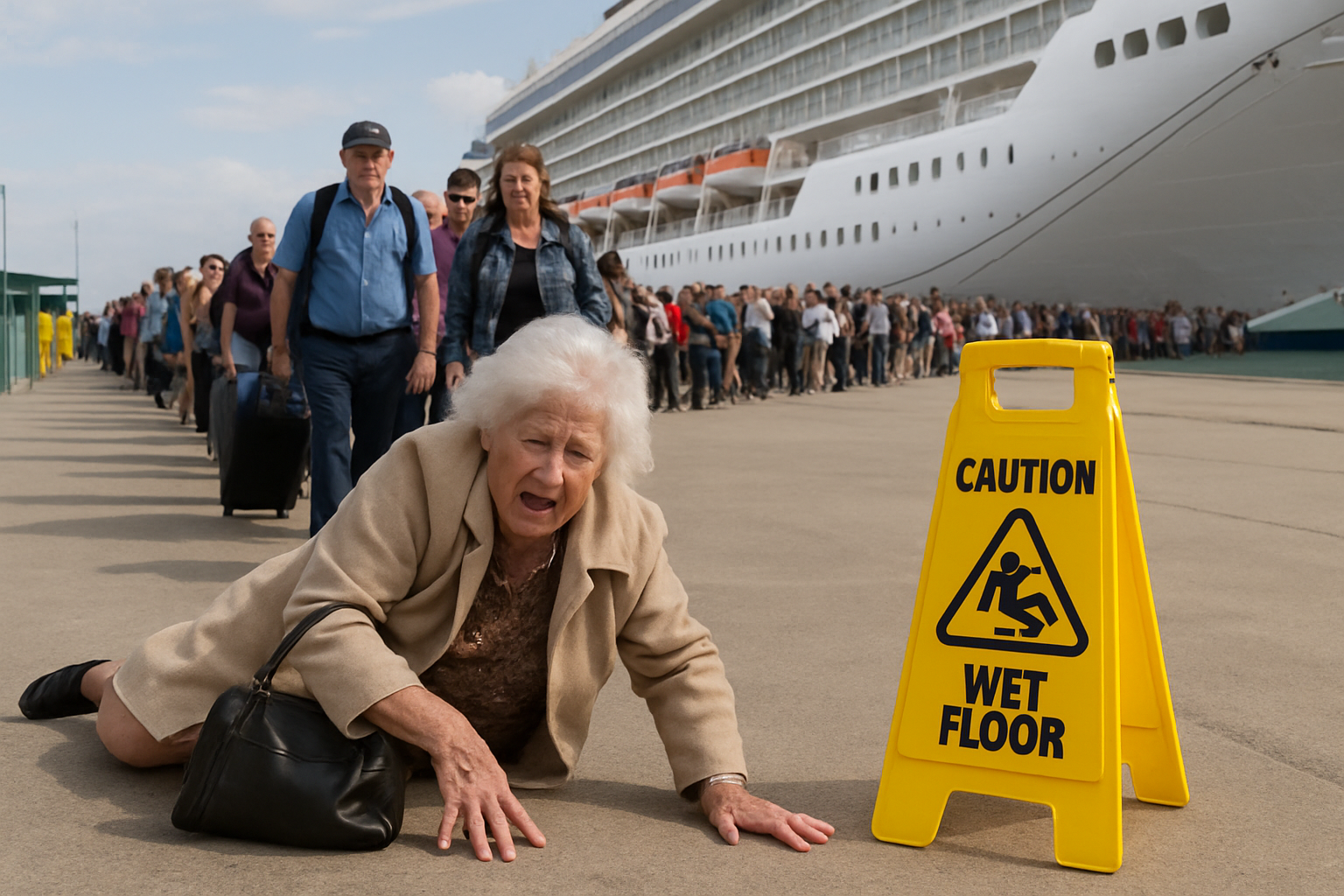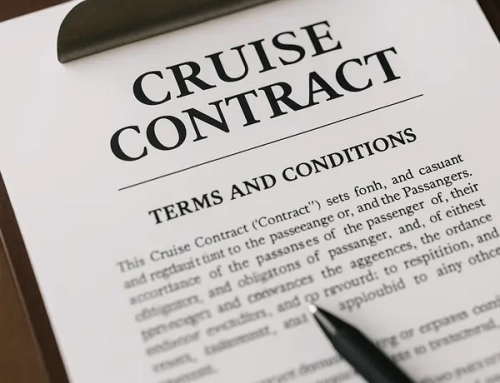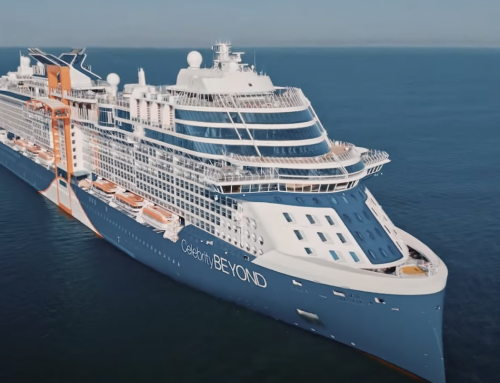Is the Cruise Line Always Responsible for Injuries at the Port?
In the wake of a serious injury at a cruise port, one of the first and most pressing questions victims ask is: “Is the cruise line always responsible for injuries at the port?” It’s a fair question—and one that requires careful legal analysis.
At Perkins Law Offices, we represent individuals who have suffered life-altering injuries while on cruises, at port terminals, and during shore excursions. In this article, we break down the complexities of cruise line liability, how maritime law applies at different locations, and what your rights may be if you were hurt before even stepping foot on the ship—or just after disembarking.

Is the cruise line always responsible for injuries at the port?
Understanding Liability: The Cruise Line’s Duty of Care
Cruise lines operate under a duty of care to provide reasonably safe conditions for passengers not only onboard but also during embarkation and disembarkation. This includes port terminals owned or operated by the cruise line. But the question of legal responsibility hinges on where and how the incident occurred, and who had control over the premises at the time.
When Cruise Lines May Be Liable at the Port
Cruise lines may be found legally responsible if:
-
The port facility is owned or operated by the cruise line.
-
The cruise line failed to warn passengers about a known hazard.
-
The cruise line selected an unreasonably dangerous port or excursion provider.
-
The injury occurred during embarkation or disembarkation under cruise line supervision.
-
Crew members or cruise staff directly contributed to the unsafe condition.
In legal terms, this often falls under cruise ship negligence or cruise ship accident liability, which are governed by complex maritime laws and international regulations.
Port Terminals and Third-Party Responsibility
Not all port facilities are under the cruise line’s control. Many are owned and maintained by local governments, independent operators, or port authorities. In such cases, determining who is liable becomes more nuanced.
Let’s consider a real-world example. A Miami passenger suffers a head injury after tripping over uneven concrete just outside a Caribbean terminal. Surveillance footage shows port maintenance had been neglected. The cruise line did not own or manage the terminal—but advertised it as part of their “seamless luxury experience.” In such a case, liability could extend to multiple parties: the terminal operator, the cruise line (for failing to warn), or even a third-party vendor.
This layered responsibility forms the basis of many port injury claims, and requires experienced legal representation to navigate.
Who Can You Hold Accountable for a Port Injury?
Determining who is responsible for port injuries requires an investigation into the facts and legal relationships involved. Cruise lines often include clauses in their contracts attempting to limit their liability for off-ship incidents—but those disclaimers are not always enforceable.
You may be able to pursue a legal claim against:
-
The cruise line, if they failed in their duty of care.
-
The port authority, if the injury stemmed from unsafe property conditions.
-
A shore excursion company, if the incident occurred on a sponsored tour.
-
A security provider or transportation company, depending on the event.
This makes it essential to consult a cruise accident attorney as soon as possible after the incident.
Maritime Law & Jurisdiction: What Rules Apply?
Unlike a typical injury on U.S. soil, cruise port accidents fall under a mix of federal maritime law, international agreements, and foreign civil codes. Jurisdiction is key. Most cruise tickets contain a forum selection clause, often requiring that lawsuits be filed in Miami federal court, regardless of where the injury happened.
These clauses are enforceable in most cases, and understanding this procedural nuance can make or break a case. At Perkins Law Offices, we’ve successfully litigated injury cases involving:
-
Slip-and-falls at foreign cruise terminals
-
Port shuttle accidents
-
Assaults due to inadequate security
-
Injuries during controlled embarkation zones
Each situation demands a different legal approach—and we’re prepared to build that strategy.
Suing a Cruise Line for Port Injuries: What Victims Need to Know
If you’re considering suing a cruise line after a port accident, here are critical steps to take immediately:
-
Document the scene. Take photos, note the conditions, and identify witnesses.
-
Report the incident. Notify both the cruise line and port authorities in writing.
-
Seek immediate medical attention. This helps preserve a clear record of injuries.
-
Avoid signing anything. Cruise lines may ask you to sign waivers—do not sign without legal counsel.
-
Contact a maritime injury lawyer. These cases are governed by short time limits, often as little as one year from the date of injury.
The sooner you involve a qualified cruise injury lawyer, the better your chances of holding the responsible party accountable and recovering full and fair compensation.
Real Case Example: Perkins Law Offices Takes Action
One of our clients, a retired couple from Broward County, suffered a devastating fall at a Caribbean port after tripping over an unsecured electrical cord. The cruise line attempted to deny responsibility, stating the port was managed by a third party.
Our investigation revealed that the area was under the supervision of a contracted cruise staff member responsible for logistics. Through litigation, we established the cruise line’s indirect control and obtained a six-figure confidential settlement. This case is a clear reminder that responsibility doesn’t always end at the gangway.
Expert Insight: Attorney Alex Perkins on Cruise Port Injury Cases
“Cruise lines often market a seamless, luxury experience, but when something goes wrong at the port, they try to distance themselves. Don’t be misled by disclaimers in your ticket. Maritime law gives passengers rights—and we know how to enforce them.”
— Alex Perkins, Maritime Injury Lawyer, Perkins Law Offices
Frequently Asked Questions (FAQs)
Is the cruise line always responsible for injuries at the port?
Not always. Liability depends on whether the cruise line had control over the area or contributed to the unsafe conditions. Each case must be evaluated individually.
Can I sue a cruise line for a port injury if it happened in another country?
Yes. In most cases, you can still file a lawsuit in the U.S.—often in Miami federal court—depending on the cruise contract and circumstances.
What is the time limit to file a claim for a port injury?
Most cruise contracts impose a one-year statute of limitations. Contact a cruise injury lawyer immediately to protect your rights.
How do I know if the port terminal is owned by the cruise line?
This information often requires investigation and legal discovery. A knowledgeable attorney can subpoena necessary records to determine ownership and control.
What damages can I recover if I win my case?
You may be entitled to medical expenses, lost wages, pain and suffering, disability, and future care costs, depending on the severity of the injury.
Injured at a Cruise Port? Contact a Trusted Miami Cruise Injury Lawyer
At Perkins Law Offices, we focus on complex cruise ship injury cases, including those that occur at ports, terminals, and during excursions. With years of experience holding cruise lines accountable, our legal team is prepared to fight for the justice you deserve.
If you or a loved one were injured at a cruise port and are unsure about your legal rights, don’t wait. Schedule a free consultation with Attorney Alex Perkins today and get answers from a team that understands maritime law inside and out.
Call (305) 741-LAWS
www.perkinslawoffices.com
Serving clients in Miami, Florida, and nationwide.



